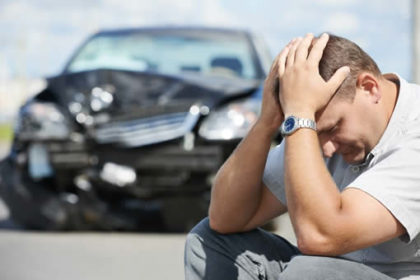
Last week I discussed what you should and should not do when you are involved in a road traffic accident. This week I will outline our role, at Lynch and Partners, when you decide to make a claim following a road traffic accident.
The early months of your case will be largely taken up with gathering all of the information we need to achieve the best possible outcome for you. We will note all details about the accident and your injury, talk to witnesses, possibly instruct an engineer to document the accident scene, talk to investigating Garda or any other emergency services that may be of assistance, and begin getting detailed medical reports on your injuries.
Your case must firstly be lodged with the Personal Injuries Assessment Board (PIAB). In 2004, PIAB was set up to act as a filter in all cases involving personal injuries inIreland. It was supposed to simplify and make more efficient the whole personal injuries procedure with the double aim of making the process faster and cheaper for insurance companies. In reality the PIAB procedure tends to make the process longer and in many cases it can add up to twelve months of procedure to your case.
If your case is not resolved in the PIAB process we will then begin the court process on your behalf. This involves issuing proceedings in either the Circuit Court or the High Court. Circuit Court cases involve damages not in excess of €38,092 and cases involving damages greater than that amount are dealt with in the High Court.
Once the initiating document is completed, it is issued by the Court Office and served on the other side or their solicitor. After that, there will be an exchange of a variety of Court documents which will deal with the defence that the other side will rely on in challenging the case and discovery of relevant documents or records.
At any time during this process you may be invited to settle your case and usually such settlement meetings take place in Courthouses. You will not have to speak with anyone other than Lynch and Partners or the barrister that we will have engaged on your behalf and we will negotiate settlement terms on your behalf. Any offers that are made by the other side will be explained to you as will any costs that have to be paid by you. You will receive our opinion on the likely outcome of your case and our views on the correct compensation that the Court would give you.
If your case does not settle out-of-court, it will be scheduled for trial before a court. During the hearing of your case the Court will hear medical evidence relating to your injuries and evidence from witnesses and engineers as to how the accident happened and who they feel is responsible. The judge will make his/her decision on: whether the Defendant is at fault and, therefore, liable to pay damages to you and the amount of damages to which you are entitled as a result of your injuries, and who shall pay the costs of the proceedings. Usually, if you have won the case, the judge will order that the Defendant pay your legal costs as well as his/her own.
If the Defendant admits that he/she is to blame for your injuries the matter will be sent to a court for judgement on the amount of damages you are entitled to. In this situation, the court does not consider the question of who is to blame. The judge places a financial value on your case based on an examination of the nature and extent of your injuries and the prognosis for the future. This examination will be conducted by considering the available medical reports and/or hearing medical practitioners’ evidence relating to your injuries. You will be called as a witness so that you can describe your injuries.
In advance of any Court hearing we will prepare you for the hearing by explaining how the hearing will operate, explaining the types of questions that you may be asked, explaining who the various witnesses will be and, in general, trying to put you at ease.

